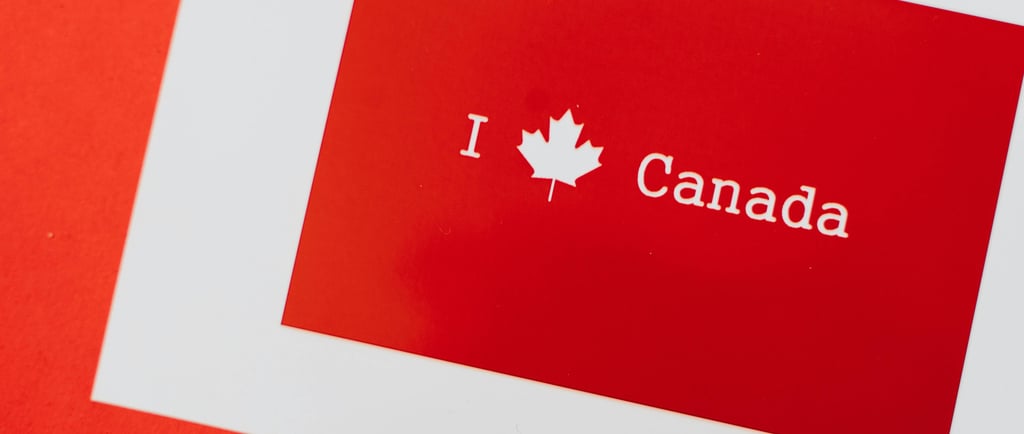Understanding Key Documents Related to Canadian Permanent Residency
Confused about Canadian Permanent Residency documents? Learn the key differences between PR, COPR, PR Card, PRTD, and citizenship. Understand their purposes, travel requirements, and renewal processes to stay compliant and avoid complications.
BLOGS
3/17/20253 min read


Navigating Canadian immigration paperwork can be confusing, especially when it comes to understanding the different documents associated with Permanent Residency (PR). Many people struggle to differentiate between PR, COPR, PR Card, PRTD, and citizenship. In this blog, we’ll break them down clearly so you can understand what each document means and its purpose.
1. What Does It Mean to Be a Permanent Resident (PR)?
Being a Canadian Permanent Resident grants you the legal right to live and work anywhere in Canada. This status provides access to various benefits, including healthcare, education, and social services. While PRs enjoy many rights similar to citizens, they are still foreign nationals and must meet certain conditions to maintain their status, such as fulfilling residency obligations.
2. What Is the Confirmation of Permanent Residence (COPR)?
The Confirmation of Permanent Residence (COPR) is an official document issued when your PR application is approved. It serves as the first formal proof of your PR status.
If you are outside Canada when you receive your COPR, you will use it for your initial entry into the country as a PR.
If you are already in Canada when you receive your COPR, you can complete the landing process virtually. Once this is done, you simply wait for your first PR Card to arrive—no separate application is needed.
Since PR Card processing times can range from a few weeks to several months, there is no need to worry if you don’t receive it immediately, as long as you are not planning to travel outside Canada. However, if you do need to travel before receiving your PR Card, you will require a PRTD.
3. What Is the Permanent Resident Travel Document (PRTD)?
The Permanent Resident Travel Document (PRTD) is a temporary document that allows PRs to return to Canada if they do not have a valid PR Card.
PRTD applications are typically submitted while you are outside Canada.
If you need to return urgently, you may request expedited processing, but approval is not guaranteed.
It is always advisable to carry your PR Card when traveling to avoid the hassle of applying for a PRTD.
4. What Is the Permanent Resident Card (PR Card)?
A PR Card is an official document that serves as proof of your PR status. It is essential for re-entering Canada after traveling abroad. Without a PR Card or PRTD, you may have difficulty boarding a flight, train, bus, or boat back to Canada.
The PR Card also functions as a photo ID, similar to a passport or driver’s license.
Most PR Cards are valid for five years.
To renew your PR Card, you must meet the residency obligation, which requires at least 730 days (two years) of physical presence in Canada within the last five years.
In some cases, IRCC officers may consider special circumstances if you do not meet the physical presence requirement. If you are unsure about your eligibility, consult official IRCC resources or seek professional advice.
5. Canadian Citizenship vs. Permanent Residency
Becoming a Canadian citizen is a significant transition and requires meeting specific criteria. To apply for citizenship, you must have been physically present in Canada for at least 1,095 days (three years) within the last five years. Some exceptions apply for those who do not meet this requirement.
Once you obtain Canadian citizenship, you are no longer a PR. Citizens receive a Canadian passport and gain the right to vote, among other privileges.
Understanding the different documents associated with Canadian Permanent Residency is crucial for maintaining your status and ensuring smooth travel. Whether you are a new PR or planning for citizenship, staying informed about these documents will help you navigate your journey with confidence. For official information and updates, always refer to Immigration, Refugees and Citizenship Canada (IRCC) resources.
Mapleaves Immigration Services
©2025 All rights reserved
Verify Authorized Representative
Only an authorized representative can provide Canadian immigration services to you for a fee. It’s law. If you use a paid representative who’s not authorized, your application may be returned or refused.


Contact: info@mapleavesimm.com
